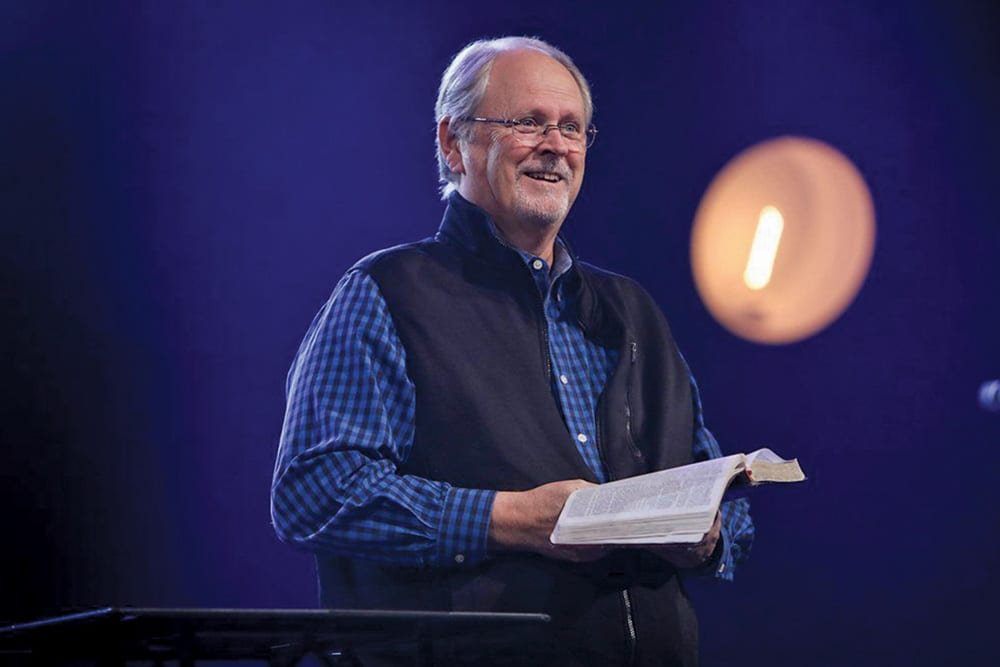
Revival is a word that is often used and spoken about in our churches, but what is revival? Richard Owen Roberts’ definition is one that I’ve used for years—revival is the extraordinary work of the Spirit of God among His people that produces extraordinary results.
In other words, there’s the ordinary movement of God that’s happening all the time … but then there’s the extraordinary movement of God, those seasons in a life or a church or even a region or nation when God seems to open the heavens and come down and manifest Himself, what we talk about as the manifest presence of God—clear, visible, unmistakable. It’s when God’s people come back to life again.
We use the term spiritual awakening to refer to something that happens after revival. That is when lost people begin to just wake up, by the grace of God and the activity of His Spirit, and come to Christ in amazing, record numbers. We often tie revival and spiritual awakening together, but they’re two separate components of the same activity of God—one in the church and one in the world.
Revival is not a series of meetings. That’s what we often think of. We think, “Well, we’re having a revival tonight” or “we’re having a revival this week.” That word has lost its meaning to so many because the idea for some people is, we’re going to have a series of meetings when we set aside some time to seek God.
That may result in real revival or it may not, but revival is a God word.
It’s when God chooses to revive His people. So it’s not humanistic. It’s not man-made. It’s not orchestrated by us. It’s divinely orchestrated, but we cooperate. In order to see that, we need to cooperate with God in what He’s doing.
First, there is always what I call the preparatory work of God in revival. R.B. Jones, who was a pastor in the Welsh Revival and wrote a book 20 years after that, said revival is never of sudden origin. In other words, it doesn’t just happen in a moment. When you study the five nationwide revivals in America, you can very clearly look at the eight to 10 years prior to that revival and see certain identifiable marks.
I like to think of how John the Baptist came [prior to] the manifest presence of Christ. He was a voice crying in the wilderness. So when revivals come, God starts raising up voices, which is exactly what He is doing right now, and there’s a message of repentance and coming judgment and the hope of Christ. There is desperation—an urgent, desperate cry begins to come from God’s people, crying out to Him to do something that they can’t seem to do. Then you start hearing of these little outbreaks of the movement of God, just these extraordinary mercy drops. We’re seeing exactly that right now.
You can’t find revival in the Bible or history, and certainly not in our American history, where real revival is not preceded by desperate, increasing levels of unified prayer. When people start calling us to pray, they’re not just telling us we ought to pray. No! God is showing us our need, bringing us to desperation and turning us to the one place where that can be resolved.
When revival comes in the church, there’s always repentance, because the thing that’s pulled us away and made us unrevived and distant and calloused is our sin. God reveals our sin, and there’s always repentance and a return to Christ. Real revival is always Christ-centered. The emphasis is not on revival. The emphasis is on Christ and coming back to Him.
Then a final result of revival is testimony—people start witnessing and telling. People can’t stop telling what they’ve seen and heard. That leads to spiritual awakening among lost people. This is why every great missions movement in history has come out of seasons of revival. That’s provable.
I’ve been studying revivals for 50 years—ever since the Jesus Movement. I am more hopeful right now than I’ve ever been.
The reasons are, number one, the condition of our nation and world. Revival doesn’t come when everything’s great. It comes when everything is dark. God’s people get desperate and they cry out. This decade reminds me so much of the 60s. There was a spirit of anarchy, there was rioting, there was a whole new level of sexual perversion that was happening. There was real discontent on the campuses … and that’s exactly the season we’re in right now. [The circumstances of the 1960s] resulted in the Jesus Movement in the early 70s, which was the last significant movement of revival and awakening that we’ve had in our nation.
Number two, I see God raising up voices all across America. Fifteen years ago, you couldn’t scare up a conversation about revival. Now, every thinking pastor I know is talking about revival and awakening and prayer. God is raising up voices. That’s what He has always done. There’s a call to repentance about the coming judgment of God if we don’t repent. The role of the Holy Spirit and the role of prayer, that has by and large been lost, is being returned. That really encourages me. The desperation that is happening, I think, is a sign. The extraordinary prayer that’s going on [is a sign]. The National Prayer Committee chairman, Dave Butts, said to me not too long ago that they believe more people are praying right now in America than any time in American history.
I feel it in my spirit so deeply, and I’m so moved when I talk about these things, I get overcome. I’ve had seasons where that was not the case. I just think it’s coming.
This article was adapted from an interview conducted by the Southern Baptist Texan.






















